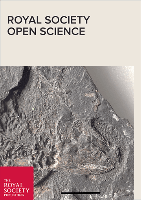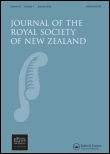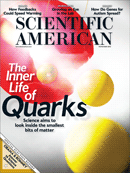
Royal Society Open Science
Scope & Guideline
Unlocking knowledge through open access and global engagement.
Introduction
Aims and Scopes
- Interdisciplinary Research:
The journal encourages submissions that bridge multiple scientific disciplines, fostering collaboration and knowledge exchange. This includes studies that integrate methods and findings from fields such as biology, physics, psychology, and environmental science. - Open Access Publishing:
Royal Society Open Science champions the open access model, enabling unrestricted access to published research. This approach enhances the visibility and impact of research findings, allowing a wider audience to benefit from scientific advancements. - Methodological Innovation:
The journal focuses on innovative research methodologies, including computational modeling, machine learning applications, and experimental designs that push the boundaries of traditional research paradigms. - Reproducibility and Transparency:
An emphasis on reproducibility and transparency in research practices is central to the journal's ethos. This includes the promotion of preregistration, open data sharing, and detailed methodological reporting. - Societal Impact:
Royal Society Open Science encourages research that addresses real-world challenges and societal issues, promoting studies with implications for public policy, health, and environmental sustainability.
Trending and Emerging
- AI and Machine Learning Applications:
There has been a marked increase in research exploring the applications of artificial intelligence and machine learning across various fields, including biology, social sciences, and environmental studies. This trend reflects a growing recognition of the potential of these technologies to enhance research methodologies and data analysis. - Climate Change and Environmental Sustainability:
Research addressing climate change and its impacts on ecosystems, biodiversity, and human health is increasingly prominent. This includes studies that explore mitigation strategies and adaptive responses in various ecological contexts. - Health and Pandemic Response Research:
In light of global health crises, there is a surge in studies focusing on infectious diseases, public health interventions, and behavioral responses to pandemics, particularly related to COVID-19. This reflects an urgent need for research that informs public health policy and response strategies. - Genomics and Biotechnology:
The field of genomics, particularly regarding its applications in health and agriculture, is gaining traction. Research involving gene editing, synthetic biology, and personalized medicine is increasingly featured, highlighting advancements in biotechnological methods. - Cognitive and Behavioral Studies:
There is a growing trend in research examining cognitive processes, decision-making, and social behaviors, particularly in the context of environmental and health-related challenges. This includes interdisciplinary studies that integrate psychology with other scientific domains.
Declining or Waning
- Traditional Biology:
There appears to be a waning interest in traditional biological studies that do not incorporate innovative methodologies or interdisciplinary approaches. This suggests a shift towards more integrated research that combines biology with fields such as computational science and environmental studies. - Localized Environmental Studies:
Research focusing solely on localized environmental issues without broader implications or connections to global challenges seems to be declining. The journal now favors studies that link local findings to broader ecological or societal contexts. - Purely Descriptive Research:
There is less emphasis on purely descriptive research that lacks a strong methodological framework or theoretical underpinning. The journal is increasingly favoring studies that provide theoretical insights or practical applications. - Non-quantitative Social Research:
The journal has seen a decrease in qualitative social research that does not employ rigorous quantitative methods or empirical testing, reflecting a trend towards more data-driven approaches.
Similar Journals

Collabra-Psychology
Bridging Theory and Practice in PsychologyCollabra-Psychology is a premier, peer-reviewed journal published by University of California Press, focusing on the diverse and evolving landscape of psychology. Established in 2017 as a fully Open Access platform, Collabra-Psychology aims to foster innovative research and disseminate valuable findings to a global audience without barriers. It proudly holds a Q1 quartile ranking in the field of psychology (miscellaneous) for 2023, reflecting high levels of influence and quality within its domain. As part of the Scopus indexing, it ranks #88 out of 216 in general psychology, cementing its role as a critical resource for researchers, practitioners, and students alike. With a commitment to rigorous scholarship and interdisciplinary collaboration, Collabra-Psychology not only enhances the visibility of psychological research but also promotes discussions that bridge theoretical and practical applications. Located in the United States and with a forward-looking publication timeline extending to 2024, this journal is poised to remain at the forefront of psychological research and discourse.

Proceedings of the Estonian Academy of Sciences
Advancing interdisciplinary research in engineering.Proceedings of the Estonian Academy of Sciences is a distinguished open-access journal published by Estonian Academy Publishers, dedicated to advancing the interdisciplinary field of sciences with a particular emphasis on engineering. Since its inception in 2006, the journal has been a vital platform for disseminating innovative research findings and developments, making significant contributions to the engineering community. With an impact factor reflective of its scholarly influence and a notable placement in the Q3 category for Engineering (miscellaneous) as of 2023, it attracts submissions from both established researchers and emerging scholars. The journal’s commitment to open access since 2008 ensures that groundbreaking research is freely accessible, fostering collaboration and knowledge exchange globally. Located in Tallinn, Estonia, this journal serves as an essential resource for professionals and students seeking insight into current trends and future directions in engineering.

JOURNAL OF THE ROYAL SOCIETY OF NEW ZEALAND
Unveiling Innovations in Science and HumanitiesWelcome to the JOURNAL OF THE ROYAL SOCIETY OF NEW ZEALAND, a prestigious multidisciplinary publication hosted by Taylor & Francis Ltd. Since its inception in 1971, this journal has served as a vital platform for disseminating groundbreaking research across diverse fields, from the natural sciences to the humanities, contributing to its strong ranking within the top quartile (Q1) of multidisciplinary journals. With an impressive Scopus ranking of #28 out of 171 and an 83rd percentile placement, the journal is recognized for its high-quality contributions that advance knowledge and innovation. Though it currently does not offer Open Access options, its comprehensive scope and impactful publications make it an essential resource for researchers, professionals, and students alike, striving to push the boundaries of discovery and understanding. As we continue to progress through 2024, we invite you to engage with our diverse array of articles that reflect the vibrant research landscape of New Zealand and beyond.

International Journal of Engineering and Technology Innovation
Connecting Ideas, Driving InnovationThe International Journal of Engineering and Technology Innovation, published by the Taiwan Association of Engineering & Technology Innovation, serves as a pivotal platform for recent advancements in the fields of engineering and technology innovation, fostering scholarly communication and collaboration across disciplines. Since its inception in 2011, the journal has maintained an Open Access policy, ensuring that research findings are readily available to a global audience without restrictions, promoting knowledge sharing and accelerating innovation. With an ISSN of 2223-5329 and an E-ISSN of 2226-809X, this esteemed publication encompasses vital research from categories within Civil and Structural Engineering, Electrical and Electronic Engineering, Mechanical Engineering, and Mechanics of Materials, each recognized in the Q3 quartile as of 2023. As researchers, professionals, and students navigate the rapidly evolving landscape of technology, the International Journal of Engineering and Technology Innovation serves not only as a repository of high-quality research but also as a catalyst for progressive ideas that reshape the future of engineering practices worldwide.

Behavior Research Methods
Empowering insights into the science of human behavior.Behavior Research Methods is a premier, peer-reviewed journal published by Springer that holds a significant position within the fields of psychology and behavioral science. With its ISSN 1554-351X and E-ISSN 1554-3528, this esteemed journal has been a vital resource for researchers and practitioners since its inception in 1968. By providing insightful research on innovative methodologies in behavioral studies, it has achieved remarkable recognition, consistently ranking in the Q1 category across various psychological disciplines including Developmental and Educational Psychology, Experimental and Cognitive Psychology, and Arts and Humanities. Its current Scopus rankings place it firmly within the top echelons of academic journals, with impressive percentiles in several categories. The journal's objective is to advance knowledge and foster discourse on effective research methods related to human behavior, making it an essential platform for sharing groundbreaking findings and innovative approaches. While it does not offer open access, it continues to serve as a key reference for those looking to enhance their understanding of methodological advancements in behavior research. The journal is available to scholars and institutions both in the United States and globally, affirming its role as a beacon of scholarly excellence in psychology.

SCIENTIFIC AMERICAN
Bridging Science and Society Since 1947SCIENTIFIC AMERICAN, published by Springer, stands as a prestigious multidisciplinary journal dedicated to disseminating cutting-edge scientific knowledge across a range of fields. Established in 1947, this journal has been integral in bridging the gap between scientific research and public understanding, making complex ideas accessible to a broader audience. With an ISSN of 0036-8733 and E-ISSN of 1946-7087, it maintains a strong standing within the academic community, currently ranked in the Q3 category for its multidisciplinarity, and is positioned at #93 out of 120 in its Scopus ranking, reflecting its valuable contribution to scientific discourse. While the journal is not open access, its long history and commitment to knowledge sharing ensure it remains a vital resource for researchers, professionals, and students alike, fostering a deeper appreciation of science in society.

Data in Brief
Empowering Research Through Accessible Data Insights.Data in Brief is an esteemed open-access journal published by Elsevier that has been at the forefront of disseminating valuable and succinct research findings since its inception in 2014. With a focus on multidisciplinary and educational data, the journal serves as a vital platform for researchers, professionals, and students seeking quick access to high-quality data papers that complement larger research articles. Notably, Data in Brief holds a commendable rank of #40 out of 171 in the multidisciplinary category, placing it in the 76th percentile, which underscores its relevance and impact within the academic community. Operating with an open-access model, it ensures that research is readily available to a global audience, facilitating collaboration and innovation across various fields. The journal's commitment to providing a rich repository of easily digestible data makes it an essential resource for anyone interested in enhancing their research or knowledge base.

Heliyon
Pioneering open access to elevate global scientific discourse.Heliyon is a distinguished open access journal published by CELL PRESS, headquartered in the Netherlands, that has been advancing the dissemination of scientific knowledge since 2015. With its innovative multidisciplinary approach, Heliyon has garnered significant recognition in the academic community, maintaining a prominent position as evidenced by its Q1 ranking in the multidisciplinary category for 2023, placing it at the forefront of its field. It boasts an impressive Scopus rank of #31 out of 171 journals, ranking in the 82nd percentile, underscoring its influence and reach among scholars and practitioners alike. Committed to providing a platform for diverse research, Heliyon not only facilitates the publication of high-quality research but also ensures that it is broadly accessible, enhancing visibility and engagement from a global audience. This journal is an invaluable resource for researchers, professionals, and students dedicated to interdisciplinary collaboration and innovation.

Data
Catalyzing breakthroughs in data management and analysis.Data is an innovative open-access journal published by MDPI, dedicated to advancing research and knowledge in the fields of Computer Science and Information Systems. Since its inception in 2016, Data has positioned itself as a prominent platform for disseminating high-quality research, currently boasting an impact factor reflective of its rigorous peer-review process and academic standards. Situated in Switzerland, the journal encompasses a broad scope of topics, making it an essential resource for researchers, professionals, and students alike. With a notable standing in multiple categories—including Q2 rankings in Information Systems and Information Systems and Management—the journal facilitates access to cutting-edge findings and methodologies that drive innovation in data management and analysis. Scholars are encouraged to utilize this open-access platform to share their findings and contribute to the collective understanding in these rapidly evolving fields.

Revista Innovaciencia
Exploring New Frontiers in Agriculture and ChemistryRevista Innovaciencia is an esteemed Open Access journal published by UNIV SANTANDER, based in Colombia, dedicated to fostering innovation and scientific research within the fields of Agricultural and Biological Sciences and Chemistry. Since its inception in 2013, this journal has provided a valuable platform for researchers to share original findings, reviews, and insights that contribute to the advancement of knowledge in these areas. With a current impact factor categorized in the Q4 quartile, it positions itself at the forefront of the academic discourse, despite its recent rankings that show significant opportunities for growth. The journal covers a wide range of topics and encourages submissions that address pressing issues while promoting interdisciplinary collaboration. It is an essential resource for scholars and practitioners alike who seek to engage with the latest research and developments. For more information, explore the journal's contributions to the scientific community, actively spanning across various innovative avenues in Agricultural and Biological Sciences and Chemistry, from 2019 through 2024.